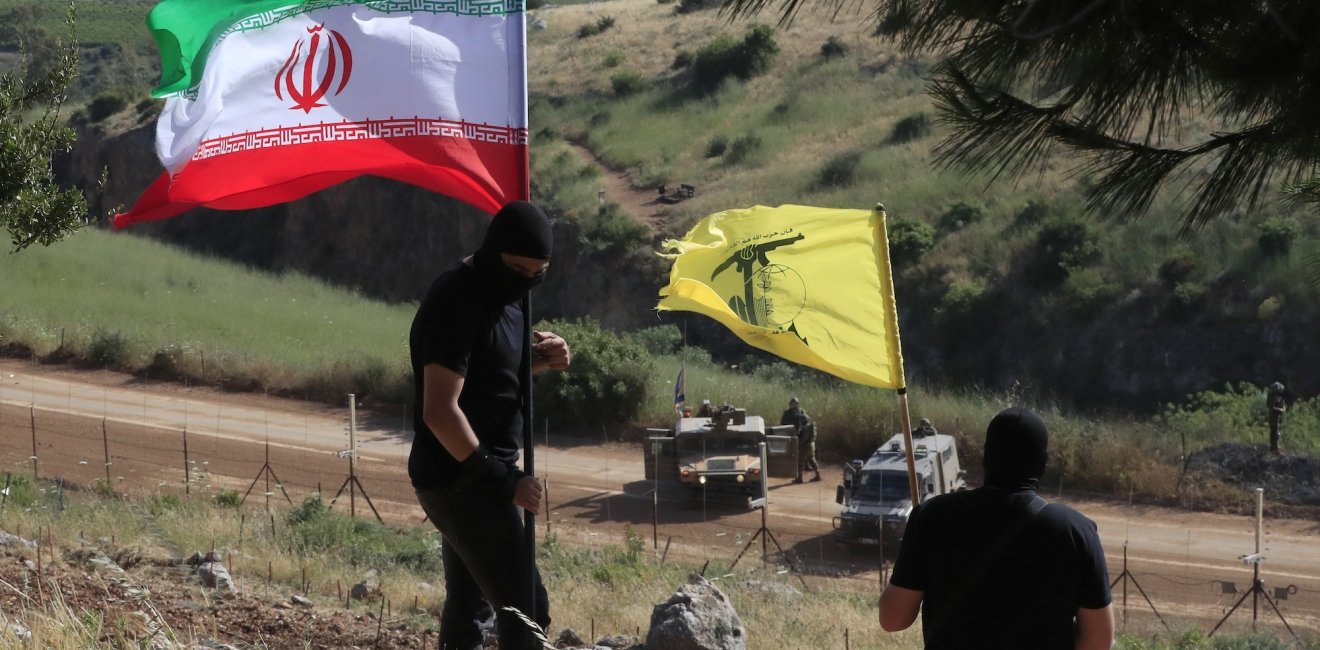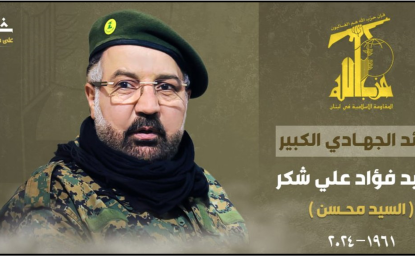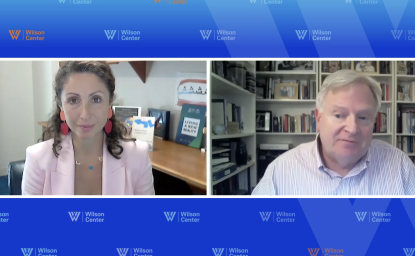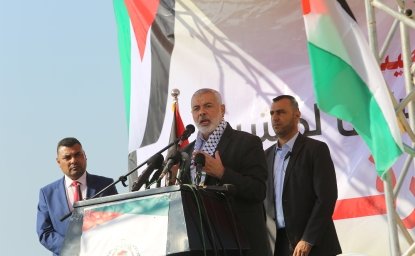If one winner has emerged from the dangerous and already destructive Hamas-Israeli conflict, at least for now, it is the Islamic Republic of Iran. It has thrown a monkey wrench into the growing chance of reconciliation between Israel and the Arab states of the Persian Gulf, particularly Saudi Arabia. It has undermined the image of an invulnerable Israel and has shown that a radical rejectionist group like Hamas, which Iran sponsors, can penetrate Israel, catch its famed military and intelligence forces unawares, kill over a thousand of its citizens, and take 199 more hostage. It has created havoc and the danger of a much broader conflict in the Middle East. The explosion at the hospital in Gaza increasingly looks as if it resulted from an Islamic Jihad rocket gone astray rather than an Israeli bomb. Yet, Iran will point to Israel as the perpetrator of this calamity.
A Success for Iran
Despite statements by US and Israeli officials that they have detected no direct role so far by Iran in Hamas’ decision to launch its attack on Israel, its role in this operation seems obvious. The Islamic Republic has long been Hamas’ major sponsor, funder, and arms supplier. It seems unlikely that Hamas launched such a major operation without a green light from Iran. Planning and training for a complex operation such as this suggests an Iranian hand. The Wall Street Journal has, in fact, cited sources that Iran’s Revolutionary Guard officers and Iranian officials were involved in meetings in Lebanon with representatives from Hamas, Hezbollah, and other militia groups that Iran sponsors, aiming to persuade these groups to cooperate and act together.
Whatever price Hamas eventually pays (and the residents of Gaza are already paying) as a result of Israel’s retaliation to the assault on its territory and its residents, from the Islamic Republic’s point of view, Hamas’ initial attack was successful. Israel’s towns and villages Along the Gaza-Israel border were overrun, and its military was initially caught unawares. Innocent Israelis, including 260 people at a music festival, were slaughtered. Not only adults but children, grandparents, and foreigners—all useful bargaining chips—were taken hostage.
Until last week, there appeared to be a chance that a goal that President Joseph Biden has worked hard to achieve, full recognition of Israel by Saudi Arabia (the Arab country that is home to Islam’s holiest places), was within reach or at least a step closer; this would lead to wider acceptance of Israel by the rest of the Muslim world. Those hopes, if not dashed forever, must now be set aside. As pictures of Gazan families displaced and on the run, buildings destroyed, and women and children killed as a result of Israeli bombing multiply, those Arab states in the Persian Gulf that have already established relations with Israel will find themselves hard-pressed by their own populations.
Moreover, Israel is now facing problems on multiple fronts. There have already been military skirmishes across the Lebanese-Israeli border in the north, and the opening of a ‘second front’ by Hezbollah—no doubt what Iran and Hamas hope for—cannot be ruled out. Israel is facing turmoil in the West Bank, where some 60 Palestinians have been killed in clashes between protesting Palestinians and Israeli security forces in the ten days since Hamas fighters entered Israel.
Viewed from the comfort of his home office in Tehran, Iran’s supreme leader, Ayatollah Ali Khamenei, can take satisfaction from an entire region in turmoil and the danger of a wider regional conflict not yet averted.
From Khamenei’s Tower
Viewed from the comfort of his home office in Tehran, Iran’s supreme leader, Ayatollah Ali Khamenei, can take satisfaction from an entire region in turmoil and the danger of a wider regional conflict not yet averted. President Biden has already positioned naval forces closer to the region and sent his secretary of state, Anthony Blinken, and his national security adviser, Jake Sullivan, to Israel and other countries in the region. The president has traveled to Israel himself. There has been a flurry of diplomatic activity and direct or telephone exchanges between foreign ministers and heads of Egypt, Iraq, Qatar, Turkey, China, and Russia.
Ayatollah Khamenei can also take satisfaction from the fact that this crisis benefits the Islamic Republic’s principal ally, Russia, and its president, Vladimir Putin. World attention has been redirected from the Ukraine war to the Middle East. Israel’s budding relations with both Russia and China, who are now posing as critics of Israel and champions of the Palestinians, have been strained.
The Islamic Republic will have achieved all this without sacrificing a single republican guardsman or soldier of its own.
If Israel invades Gaza, successfully eliminates Hamas’ leadership, and smashes its military arm, Iran will have lost a major ally and thorn in Israel’s side.
There will be consequences
But, in the end, Ayatollah Khamenei may discover that things do not turn out as he expects. Hezbollah may resist the temptation to open a second front against Israel and risk a massive response. If Israel invades Gaza, successfully eliminates Hamas’ leadership, and smashes its military arm, Iran will have lost a major ally and thorn in Israel’s side. Gazans will not think Iran did them a favor by inviting Israel’s retaliation. Israel, which Khamenei calls “a cancer” in the Middle East, will certainly still be standing.
Iran itself may discover there is a price to pay for being a principal agent of the current havoc. When the Hamas-Israel war is over, the attention of the US, Israel, and the Europeans may turn to Iran. Already, members of the US Congress are calling for more punishing sanctions against Iran, and calls for holding Iran accountable are on the rise.
Finally, the Islamic Republic must face its own people, even if harsh repression keeps them silent. With astronomical inflation of prices for bread, meat, and other staples, Iranians will again ask why their governments spend billions financing militias like Hamas and Hezbollah and engaging in adventurism abroad while neglecting their own people.
The views expressed in these articles are those of the author and do not reflect an official position of the Wilson Center.






